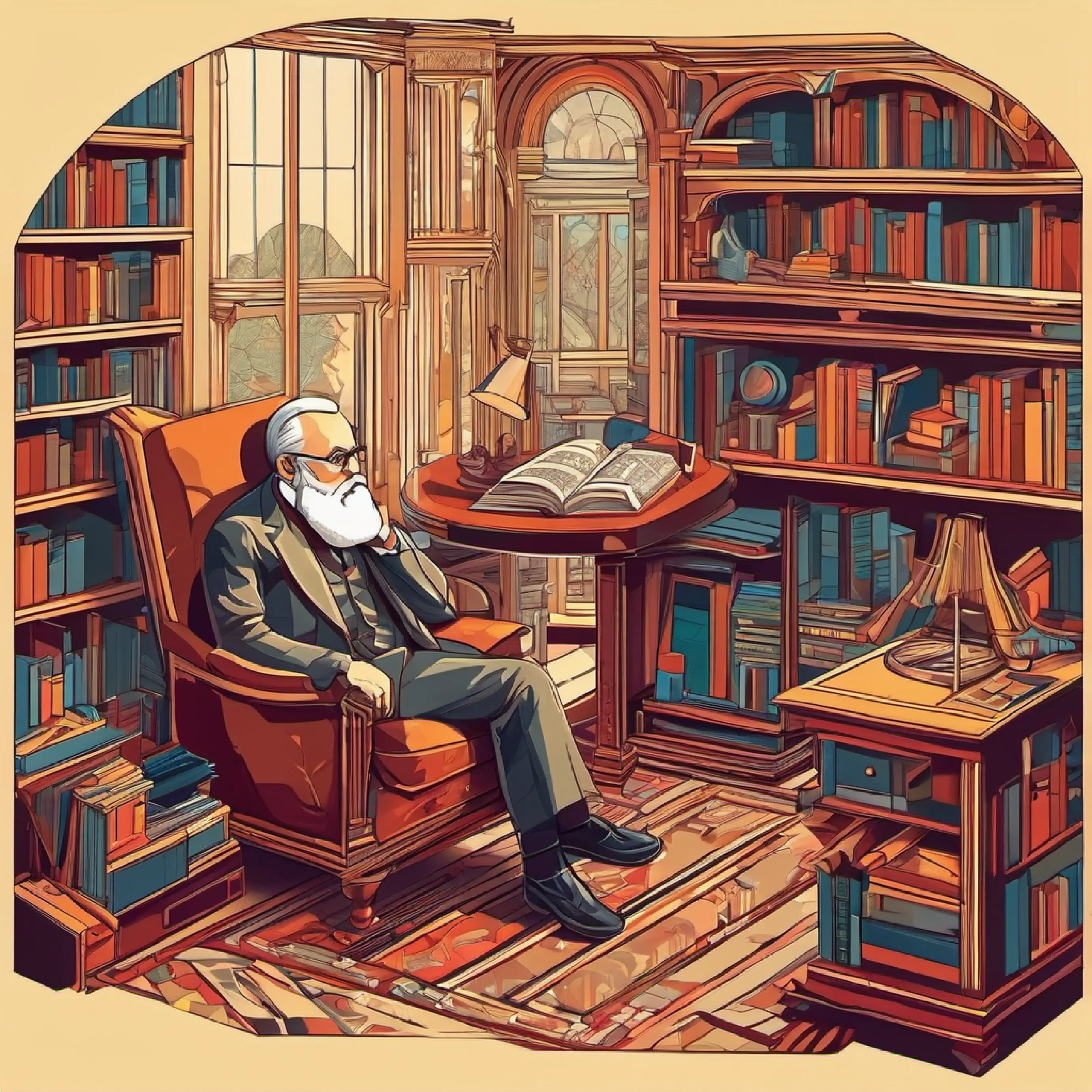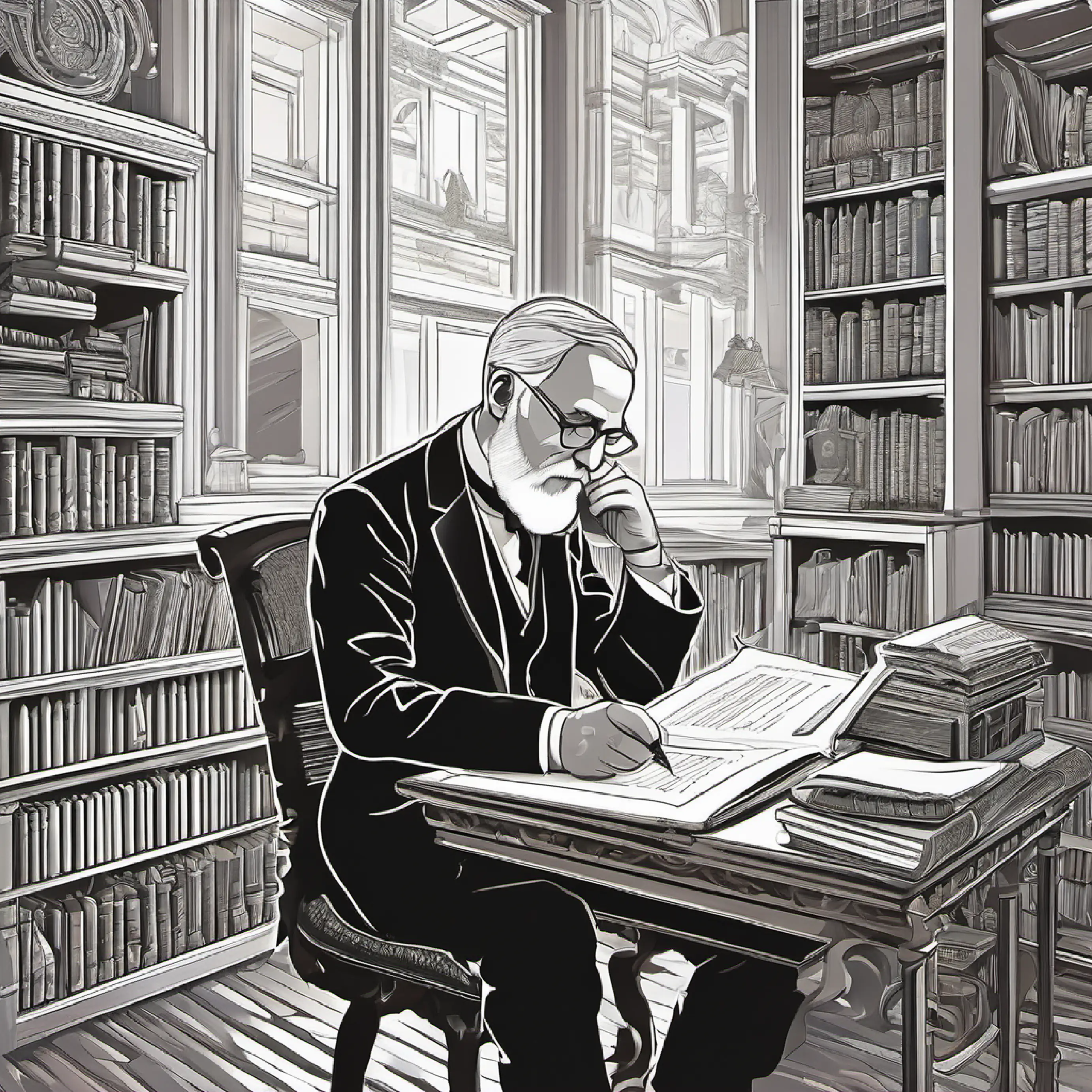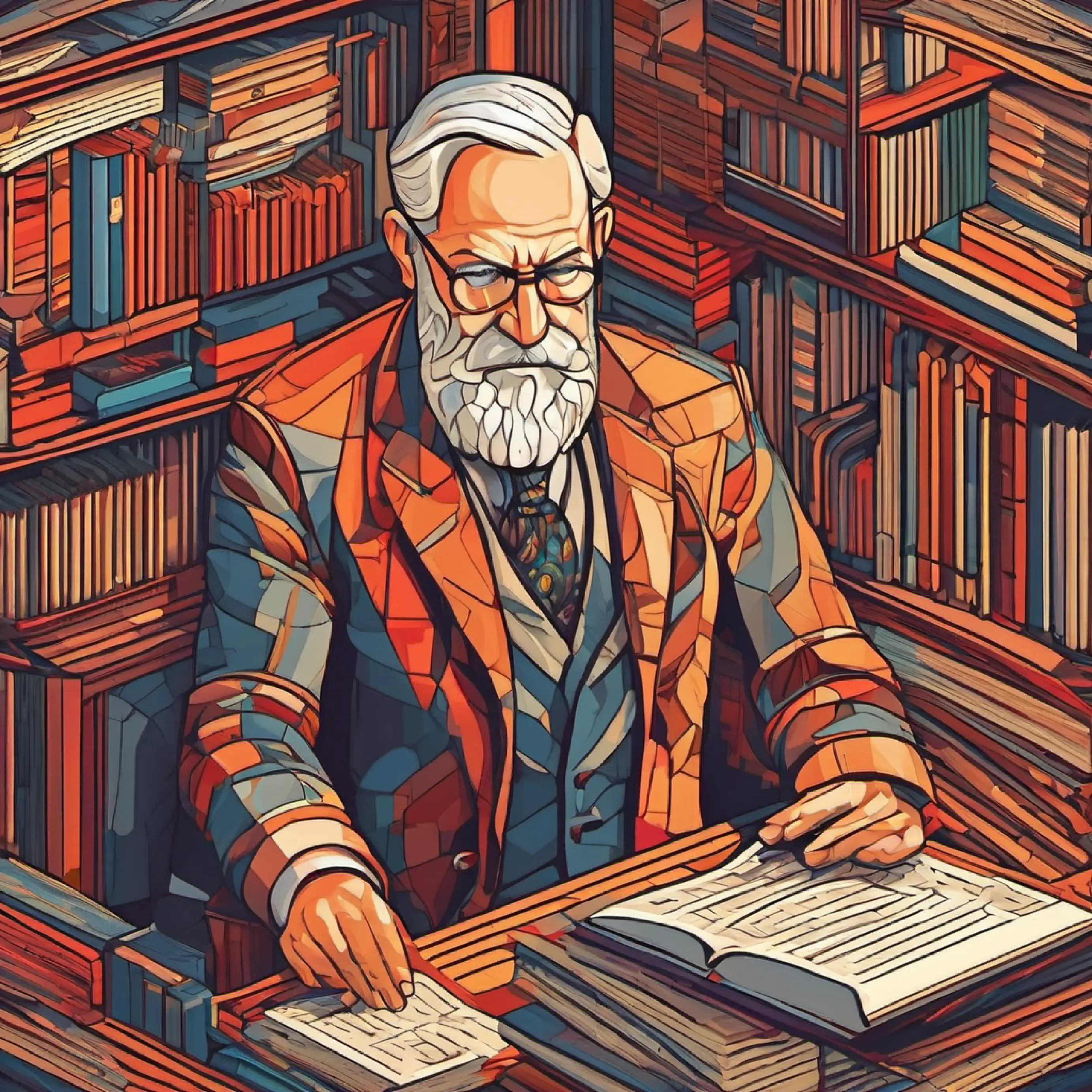We're experiencing increased traffic and our image generator is backed up. Don't worry, your images will eventually generate!
In Vienna, 1899, Sigmund Freud was contemplating the mysteries of the unconscious mind. His study overflowed with books, papers, and artifacts from various cultures, all illuminating the depth of the human psyche. At his desk, amid the clutter, Freud leaned back in his chair, fingers grazing his cheek as he pondered over the dreams narrated by his patients that day.
Freud worked on theories of the unconscious mind.

He began writing fervently, translating complex thoughts into words. 'The dream is the royal road to the unconscious,' he penned, convinced that every dream symbol had a meaning awaiting discovery. The flickering candlelight cast long shadows across the walls, echoing the duality of the conscious and unconscious realms.
Freud's work laid the foundation for dream analysis.

The clock struck midnight, and Freud's eyes grew weary from the hours of work. He settled into the leather couch and closed his eyes, slowly descending into the world he sought to understand. There, in the landscape of his dreams, a voice whispered insights that danced at the edge of cognition.
Freud often worked late into the night.

He awoke with a start, the voice’s echo still vivid in his mind. Scrambling for a paper, Freud began to jot down the remnants of his dream, fragments of his subconscious laid bare. It was a dream within a dream, a concept that would intrigue him for days to come.
Freud believed in analyzing his own dreams.

Freud's consultations that day took a peculiar turn. His patients spoke of dreams that mirrored the one he experienced the night before. Was it mere coincidence, or was there a universal pattern to be deciphered? His thoughts spiraled, branching into theories that connected dreams to the deepest desires of mankind.
Freud studied dreams for psychoanalytic clues.

As weeks passed, Freud expanded his research, networking with other intellectuals. Each correspondence brought him closer to the edge of a great discovery. He dug into myths, legends, and the symbols that pervade human history, finding traces of what he believed to be the collective unconscious.
Freud's research delved into collective symbolism and myth.

In the heart of academia, Freud faced resistance. Colleagues challenged his theories, calling them unscientific and speculative. Yet, he stood resolute, armed with case studies and relentless curiosity, fighting for the legitimacy of his work—a crusade for the truth of the human condition.
Freud's ideas were initially met with skepticism.

His determination brought forth 'The Interpretation of Dreams,' a book that would shake the foundations of psychology. Within its pages lay the complex infrastructure of dream work, unraveling the threads of manifest and latent content that connect our dreams to reality.
Freud's 'The Interpretation of Dreams' was pivotal in psychology.

Freud's innovative perspective earned him both acclaim and infamy. He became a figure of both reverence and controversy, as society struggled with the implications of his findings. His concepts of the id, ego, and superego began to filter into the consciousness of the world, altering it forever.
Freud's theories significantly influenced modern psychology and culture.

Years later, Freud reflected on his journey through old, knowing eyes. The depth of his theories had become a continuum, branching out into various schools of thought. His ideas laid the groundwork for psychoanalysis, forever changing the way human behavior and motivation are understood.
Freud's contributions to psychology are enduring.

Yet even as his health waned, Freud remained undeterred, continuing to write and evolve his theories. Within the fabric of his mind, there were always more patterns to unravel, more dreams to interpret—until his very last breath, a testament to his unwavering pursuit of knowledge.
Freud worked until the end of his life.

In the legacy left behind, the world found not just the work of Sigmund Freud, but the inception of a new understanding of the human soul. His life, a grand narrative of discovery and intellect, remains a beacon for those who dare to explore the intricate labyrinths of the mind.
Freud's legacy continues to inspire psychological exploration.
